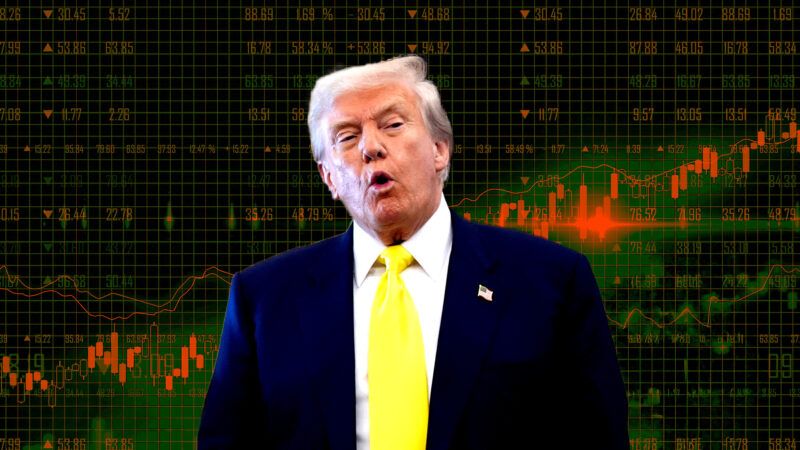Trump's Tariffs May Soon Make Car Insurance More Expensive
Tariffs on auto parts, meant to "protect America’s automobile industry," make repairs more expensive and drive up the cost of insurance.

We expect certain actions will have certain effects: For example, when President Donald Trump imposes double-digit tariffs on imports from nearly every country in the world, we shouldn't be surprised that prices would go up on material goods. But a new report suggests we may see price hikes in non-material goods, too.
"Initially, car insurance companies looked at 2025 as a year to keep insurance rates stable, or even cut them, after years of premium increases," according to a new report from the insurance comparison site Insurify. "Tariffs and inflation could derail that trend. Some insurers may have already accounted for tariffs when setting rates, while others may have to raise rates if tariffs increase the cost of claims."
At first, this may be a surprise. After all, what do tariffs have to do with an intangible good like insurance?
"The U.S. has imposed several rounds of tariffs that raise the cost of auto parts, thus increasing the cost of repair claims for insurers," the report explains. "Inflation, which was falling early in the year, has ticked up since April."
In March, Trump signed an order imposing 25 percent tariffs on "imports of automobiles and certain automobile parts." According to the order, he did this "to protect America's automobile industry, which is vital to national security and has been undermined by excessive imports threatening America's domestic industrial base and supply chains."
From there, it's a simple domino effect: Higher costs of auto parts mean higher costs on repairs, which mean higher costs for insurers whenever they have to pay out for an accident—and from there, higher rates on insurance policies.
Insurify notes that the average annual cost of insurance remained flat for the first half of the year and even "decreased in 27 states." Without tariffs, the report expects the average rate in the U.S. would rise about 4 percent, owing to inflation; it even says motorists in Vermont, Maine, Hawaii, and Rhode Island might see rates decrease.
But if tariffs remain in place, the report estimates the average national rate will go up by 7 percent.
Granted, parts from Canada and Mexico that comply with the U.S.-Mexico-Canada Agreement (USMCA) from Trump's first term are exempt from his new tariffs; just over 50 percent of all auto parts imported in 2024—around $100 billion worth—came from Canada and Mexico.
But that means nearly half of all imported auto parts are still subject to hefty taxes.
Japan, for example, accounts for nearly 12 percent of the global market in automobile exhausts; even though Trump announced last month he would lower Japan's tariff rate to 15 percent, that's a 15-percent tax Americans will have to pay simply because the president demands it.
As always, Trump's tariff regime is incomprehensible and counterproductive. According to Yahoo! Finance, tariffs have already cost automakers $11.7 billion just through the end of June; Ford, which builds more vehicles in the U.S. than any other company, paid $800 million in the second quarter of the year.
Perhaps Trump's tariffs really will usher in a new era of domestic manufacturing, as he and his supporters claim—though based on the results so far and the deals being struck, if anything, it's likely to have the opposite effect.
But even under the rosiest possible projections, it's worth noting the pain the tariffs are inflicting on consumers in the immediate term.


Show Comments (47)